
Reading a book is complete only when you understand what is written in it. You cannot enjoy what the book has to offer if you do not get the meaning.
For understanding the essence of the text, we need to put our reading comprehension skills to work, exercises like Collaborative Strategic Reading shows us where our reading comprehension lies.
Comprehension means understanding the meaning of something. Reading comprehension is the process of going through written text, understanding its meaning, and relating it to pre-existing knowledge.
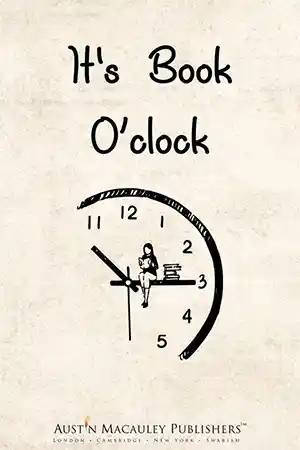
Be it, kids or adults, reading is a major part of our lives. And that is why improving reading skills is essential. The more you read, the more enhanced your knowledge base would be. It is also not always about knowledge, we also read for enjoyment. There are so many books to enjoy in the world, like popular high school books, mystery thrillers, romance novels, etc.
If you are one of those who are looking for ways on, “how to improve reading comprehension skills?”, you have come to the right place. This post is a thoroughly researched account of all the methods you can use to improve your reading comprehension.

We have carefully handpicked tips and tricks that are going to assist you in advancing your comprehension skills from the core. Refer to the table of contents below to infer the ‘Whats’ and ‘Hows’ of this research on reading comprehension strategies.
We have compiled all the necessary skills and techniques that serve as comprehension strategies for reading. Before moving on to the practices that you need to adopt or focus on, let’s get to know what reading comprehension is.
What is Reading Comprehension?
Just by the name of it, we can understand that reading comprehension means the act and ability to understand what is being read. To elaborate on this simple definition, it can be described as the process of recognizing written words, processing their meanings, and realizing the essence that is being conveyed by the author.
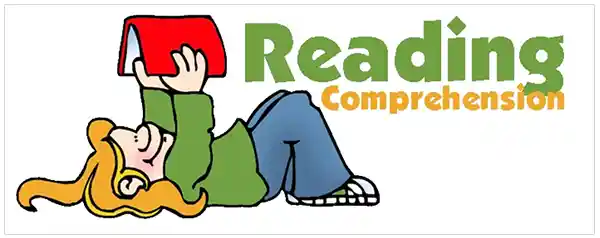
When you read, you are recalling your past knowledge, like the meaning of words you know. Along with this, you are also building up new knowledge by encountering new facts and details.
Reading is a fundamental skill, meaning it is one of the first things taught to us by our elders. The more we read, the better we become at it. Just like other skills, practicing more and more will boost your reading skill set.
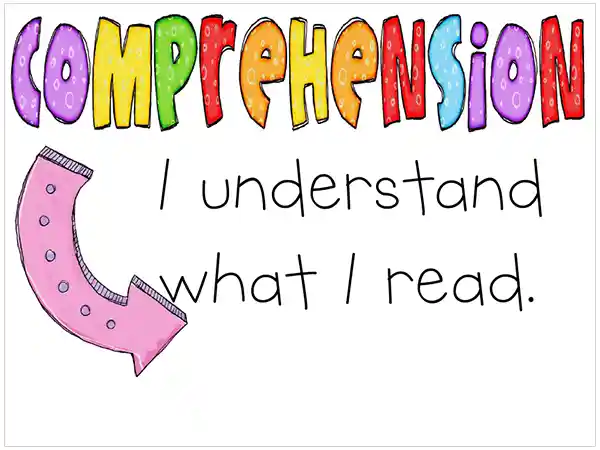
Books convey emotions and thoughts without talking; they connect us to the beautiful minds of people whom we have never met; and they take us to places while we are just sitting in a corner of our room with a cup of coffee. As Stephen King said, “Books are uniquely portable magic”.

Reading comprehension skill, at its simplest, is based on 2 basic factors: Text Comprehension and Word Reading.
Word reading is perceiving a series of words in a language and decoding their meaning. Whereas text comprehension is grasping the meaning of an entire piece of text.
So together, they mean to understand each word discreetly and then read them all together to get the context of the entire content as a whole.
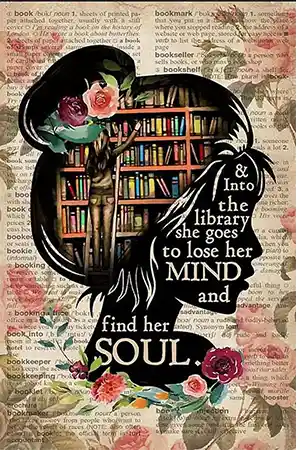
Reading comprehension may not come as easily to everyone. The comprehension skills actually depend on many other key skills. Being an expert reader requires you to master these skills discreetly. Let’s get to know what these skills are.
The Prerequisites of Reading Comprehension
Reading may seem like a mere act of going through written text. But it is an intricate activity that calls upon a lot of our acquired skills and inherent abilities.
Most of us learn comprehension skills by following the instructions of those who are proficient in them. And there are others who learn it through their experiences and develop their own methods too.
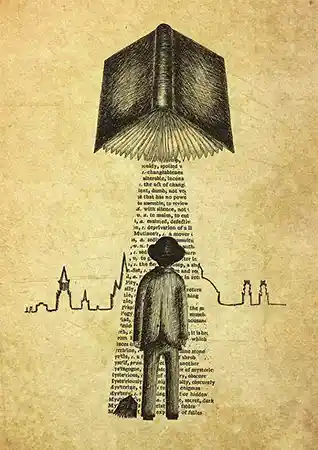
No matter how you learn and improve your reading comprehension, there are certain factors that need to be mastered to be a great reader.
Decoding
This is the act of translating a written word into speech. Or it can also mean saying the words out loud that we have heard before but never seen in writing. This is an essential process that depends on our knowledge of sound-symbol connections.
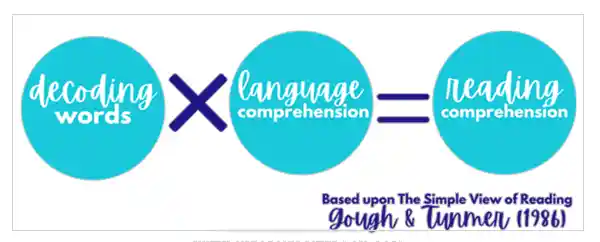
Kids with reading difficulties may struggle with decoding. In such a case, the best method is to break down a word into different parts with different sounds, much like what is done in the Orton Gillingham Approach.
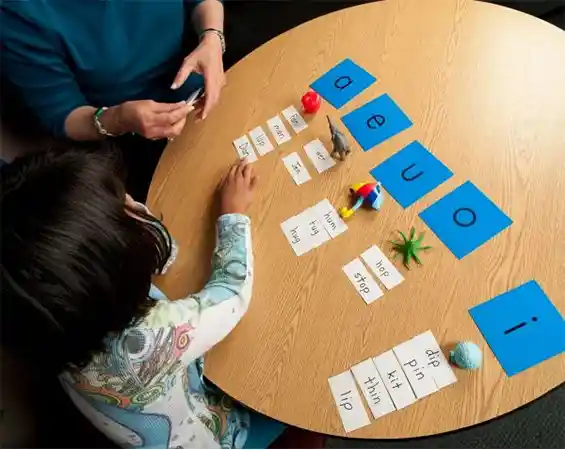
To be perfectly candid, anyone can use the strategies of the Orton Gillingham reading program whenever they encounter a complex word.
Fluency
Fluency is the ability to read a text at a considerably quick pace without stopping, while also understanding the meaning of the word or text at the same speed. Fluency requires you to recognize words instantly.
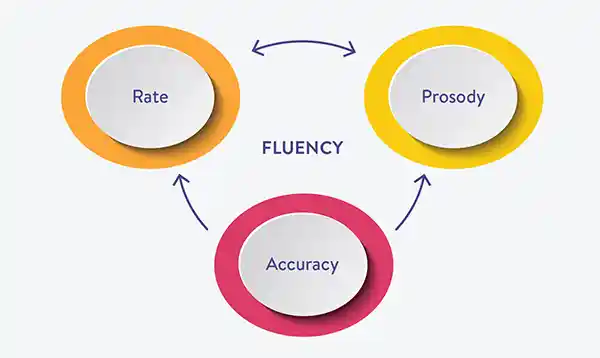
Fluency is essentially made up of 4 qualities: Rate, Prosody, and Accuracy.
Prosody means the ability to read out words. Rate signifies the speed at which the reader is going through the content. And obviously, we have to pay attention to accuracy as well. Lastly comes, expression which helps to understand the meaning and punctuation with the help of the tone of the reader.
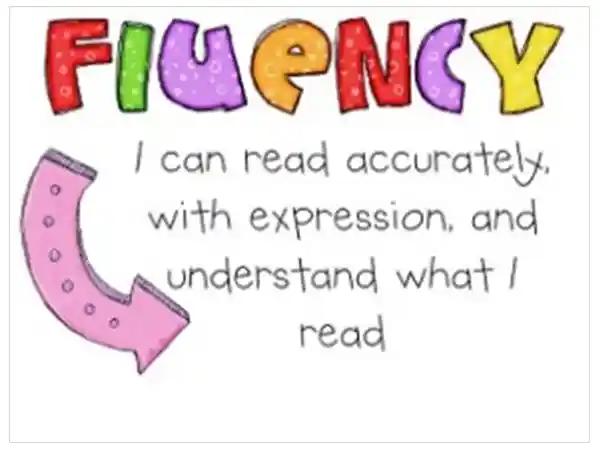
There are 3 main goals that need to be achieved to be a fluent reader:
- Reading at a uniform yet acceptably fast speed.
- Understanding the complete sense of the content being read.
- And lastly, making minimal to no errors while pronouncing words or during the expression.
Vocabulary
Vocabulary means the collection of words you know the meaning of. A strong vocabulary helps you achieve fluency in your reading. A good vocabulary also presents you as the smartest person in the room.
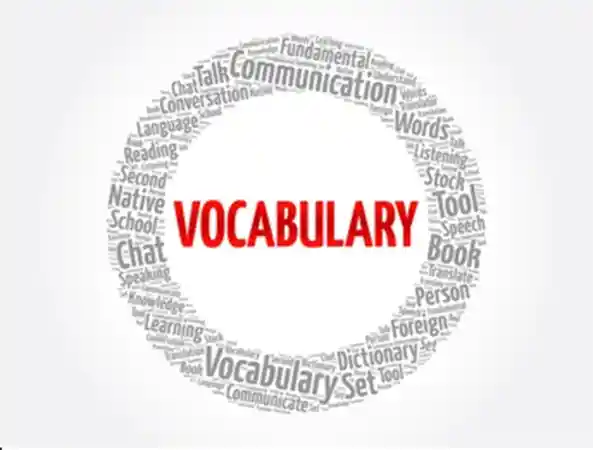
Vocabulary is enriched either through instructions or from everyday experiences. That is why you need to read more. Parents can enrich their kid’s vocabulary by reading with them.
Teachers can make choice boards for teaching new words. Teachers can display new words on a choice board in class, and students can pick out which words to learn and at what speed.
Sentence Structure and Coherence
Coherence, or cohesion, is the process of reading the words of the sentences to derive the meanings and insight of the statement. Cohesion is basically the process of making connections between the words of the sentence and also between the sentences to get an idea about the content.
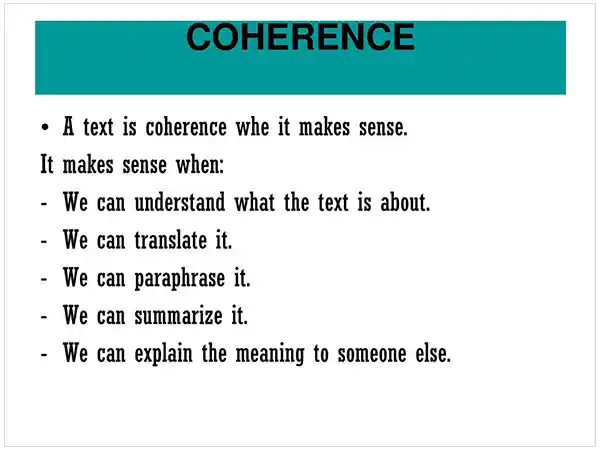
The structure of the sentence is the pattern of how all the words are put together in a sentence. There are 4 types of sentence structure: simple, compound, complex, and compound-complex.
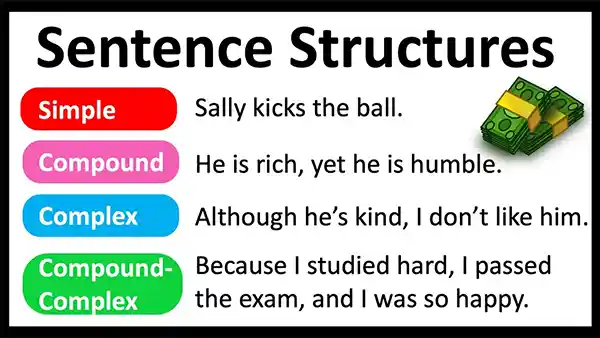
The techniques to learn coherence and sentence structure are explicit instructions from educators. Teachers need to elaborate on why the sequence of the words and sentences makes sense.
Background Knowledge and Logical Thinking
Learning involves the process of connecting new knowledge with known facts. Reasoning is also an important component of reading comprehension. Acknowledging the background settings or backstory of the events or character(s) helps us realize why something is happening.
Prior knowledge about events helps derive hidden meanings and contexts even when they are not explicitly discussed.
Attentiveness and Active Memory
These are two important mental skills that help us develop and improve our reading comprehension skills.

We need to notice information while reading to add facts to our memory. Reading comprehension involves both understanding and remembering what is being read.
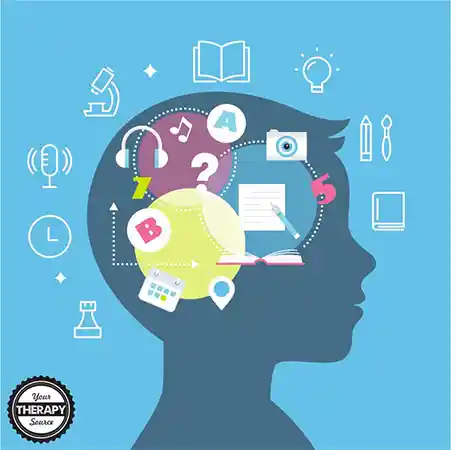
Developing attentiveness can be done by introducing interesting and fun content to children in their primitive learning years. And it also helps in developing independent reading.
Let us now move on to understand how you can refine your reading comprehension skill to the next stage.
Also Read: Can You Share Audible Books: 4 Easy Methods to Share Audible Books for Free.
Basic Skills for Reading Comprehension
Reading Comprehension is a composite process that calls upon both our logical and imaginative abilities. It is mainly influenced by 4 linguistic skills: phonology, syntax, semantics, and pragmatics. All the reading comprehension strategies revolve around improving each one of these.
Phonology is the study of phonic arrangement in a language or dialect. Syntax tells us how the smallest units of words come together to combine and form larger units like phrases and sentences.
Coming to semantics, it helps us understand the logical and lexical meaning behind sentences. And lastly, pragmatics is associating what the writer means with what the reader infers.
For reading comprehension, we need to master each one of them separately.
Before starting your work on brushing up your reading comprehension skill, let us familiarize you with the basics:
- Recognizing words and recalling their meanings.
- Processing how the text is arranged.
- Understanding the concepts of antecedents and proforms.
- Speculating on the conclusion of the text.
- Connecting to the central theme of the content.
- Ability to have queries about the content read.
- Ability to find out the answers to said queries.
- Understanding the text in a way to picture the course of events.
- Connecting the new information with the pre-existing knowledge base.
- Identifying areas of perplexity and complications.
- Determining the techniques used to relay the information to the reader.
- Recognize the propositional structures present in the content and use them to identify the tone of the text.
- Notice the mood of the scene and understand the style of speech.
- Connecting with the mind of the writer by identifying their intent, purpose, and outlook about the events in the content.

There are certain comprehension skills that need to be applied to enhance reading comprehension. These are:
- Summarizing.
- Sequencing.
- Inferencing.
- Compare and contrast.
- Concluding thoughts.
- Self-evaluation.
- Problem-solving.
- Recalling background knowledge.
- Distinguishing between fact and opinion.
- Finding the main idea, important facts, and supporting details.
These are the points to target. We have described the layout of the areas you need to work on. Now we will start with the tips and tricks.
Also Read: What is Guided Reading and How to Use It in Class?: Examples, Components, and Features.
How to Improve Reading Comprehension Skill?
If you are someone who wishes to go through the content really fast, the most important thing to do is improve reading comprehension. Reading fast would be ineffective if you cannot understand what you were reading at the same pace as you were skimming.

Improving your reading comprehension skill is not at all a tricky task. If you are someone who is struggling with their reading comprehension skills and sometimes falls behind your peers, you can adopt a few tips and tricks. These techniques are super easy and highly effective.
Before moving on to the methodologies to adopt, we have to follow certain approaches that will help you choose the steps that will work for you.
Identify your current pace of reading
In order to improve your reading comprehension skills, you need to get an idea of your reading speed. Is it too slow, or average, or are you a fast reader?
When you get an insight into your reading speed and how much you can grasp in one go while reading, you can start building up your skills.
So start reading a book or article you are comfortable with. Set a timer to note down how much time it takes you to read one page. Count the number of words and divide it by the number of minutes it took. Now you will get your reading speed in words per minute (wpm).
Choose content as per or lower than your reading level
It is obvious that when we encounter a text with a lot of unknown and difficult words, our reading speed and comprehension skills take a hit. We will take longer to pronounce and register a new word and also have to devote time to finding its meaning.
So if you are aiming to improve reading comprehension skills, you need to focus on speed first. You can upgrade your reading level later on when you have achieved your targeted reading speed.
Always go for the material that is up to your reading level or below it. This way, your focus is solely on increasing your reading speed and improving your comprehension skills.
Recognize How You Read
Re-evaluating your current reading style is going to help you realize what works best for you and what are your weak points. For this, you need to read some unfamiliar text.
When interacting with new phrases and text, take notice of certain factors. What kind of topic intrigues you? Is there anything that can distract you? What is the current state of your vocabulary?
Your comprehension skills are largely dependent on your concentration level. You need to take note of how long you can concentrate at a time. Use a timer or watch to determine how long you can read without thinking about anything else.
Let’s say you could focus continuously for 30 minutes. Start by reading for 30 minutes and slowly increase this time. Do not aim to rush everything. Take it slow and increase your reading time by 5 minutes at first.
Your comprehension skills and concentration can also fluctuate depending on the content you are reading. If you are reading something that seems pretty dull or tedious to you, you won’t be able to read it too long.
If you feel your interest fading, just slow down for a moment and take a break. Reading comprehension skills are dependent upon your understanding of the material. If you seem to need to catch up on the context of the content, it is of no use to go through with it. Never push yourself in this case.
Remember, improving any skill, including reading comprehension skill, is a work of patience. Identifying your strengths and weaknesses is the first step toward improving reading comprehension.
Strengthen Your Vocabulary
Reading comprehension is about understanding and gaining knowledge from what we are reading. In order for us to understand the content we are going through, we need to know the meaning of the words used. Hence, the more words you know, the more easily you will understand the content.
Vocabulary is the collection of words used in a particular language. The more words you are familiar with, the easier the language will become. Therefore, you should always keep learning new words.
There are many ways to improve your vocabulary:
- Determine your vocabulary level with the help of multiple vocabulary tests available online.
- Take note of new words in a conversation, lecture, advertisement, or in the dialogues of your favorite shows.
- Now write down their meaning from the dictionary.
- Tabulate unknown words and their meanings in a neat manner and go through them almost every day.
- Write the words and their meaning on flashcards to revise them on the go.
- Try to use the newly learned words during writing or in a conversation.
- Cultivate the habit of reading. The more you read, the more new words you will learn.
Be curious about the text you are reading
Have a talk about the content with yourself. You need to discover the theme and hidden context of the text you are reading to feel more involved with the written text.
Ask about the character development and relationships, the author’s perspective on the content, the setting and theme of the content, etc. These kinds of questions intrigue you more about the text you are reading and keep you interested.
Decipher the Main Idea or Aim of your reading
One more factor that helps keep you engaged in the content, is understanding what you will gain at the end. If available, read the summary of the content to understand the central idea of the text. Or try to work it out on your own with the help of the titles and headings.
If the content is long, try to take a break after every few paragraphs and connect all of them amongst themselves and with the central theme. At the end of your reading session, break down the main idea in your own words.
Make a synopsis of what you read
The best way to have a deeper understanding of what you have read is to jot down the important points of the text. Write a small summary of the entire text. This way, you will be able to point out the important parts. Also, this method checks your knowledge of the matter. And when you write down the structure of the content in your own words, you are going to remember it for a longer period of time.
Divide the content into smaller and more logical chunks
When we are reading a complex text, it becomes difficult for us to fathom everything in one go. Sometimes reading a complicated sentence in one go makes us repeat it several times to get to the meaning of it.
Therefore, the best way to easily understand a piece of text is to break it down. Rather than reading the whole thing in its entirety, make sections of it as you like. Maybe take one sentence at a time, or complete one idea at a time before moving to the next context.
This way, you will encounter only a small piece of information at one time and will not get overwhelmed with too many details. This helps your brain focus better and not get confused or bored because it is bombarded with more information than it can handle. Also, you notice everything better, like any new or difficult words, any scientific terms or facts, or some unintended pun, etc.
Have some realistic goals
You might be thinking that the only goal you set for reading is to read the whole content you are dealing with. However, you can have other goals too, which will actually help you in your reading journey. But the goals must be realistic and achievable.
For instance, if you have started a book with, say, 200 pages and 8 chapters, don’t think that you will finish it in 2 or 3 days. Rather, target reading 3 chapters in a day. There is no point in hurriedly finishing the book if you have not gained knowledge.
You can also finish one chapter and then summarize it to understand what is happening in it. Also, when you summarize the second one, try to connect the context with the previous one.
The Importance of Skimming
If you are encountering new content or content that is complicated or difficult for you, it is better to skim through the content first. Skimming means going over the text in a quick manner, while taking note of certain points or words that can give you a glimpse of the context of the text.
When you skim through the content, it helps you get an idea of what the content is about. Additionally, you will also be able to spot any difficult words that you might not know. Skimming will let you know what parts or sections of the content may demand more of your time and concentration.
This is a great way of preparing yourself before you actually start reading. You are well-prepared beforehand and thus can plan your reading schedule.
Next up, we are going to suggest practices you can follow to improve your comprehension and read better.
Strategies to Improve Reading Comprehension
Our reading comprehension skills are developed as children. However, as learning is a life-long process, we keep on adding to our skill sets throughout our lives.
A lot of people wonder whether they can enhance their comprehension skills in the later part of their lives too. If you are one of them, we can assure you that it is very possible to improve your reading comprehension as an adult as well.
For those aiming for this, we bring to you an exhaustive list of methodologies that you can apply. These techniques are well-approved by many and thus are guaranteed to benefit you.
- Slow down when needed: Having a relaxed pace for reading is ideal when you are typing to improve your comprehension skills. This way, you focus on every detail, as a slower eye movement lets to notice each word separately. You also process information slower, which helps in remembering everything and also assures no part is left out.
Stop after reading each sentence and analyze what you understood. You can also stop after phrases and even go over them again if you find them difficult to follow.
- Get the hang of the basics: We have thoroughly defined the basic skills for reading comprehension. These are comprehension strategies for reading. Practicing and mastering them is the key to boosting your comprehension skills.
The more you read, the faster you master these skills. Spend a considerable amount of time upgrading your vocabulary. Not only will it improve your reading comprehension, but it will also increase your reading speed over time.
- Self-monitor: Analyzing yourself is one more way to ensure you are working in the right direction. Look for what might slow you down, pinpoint the distractions, find out what intrigues you, etc. This sort of self-awareness will help you manage your resources and also make sure you identify and avoid distractions to stay focused.
- Highlight phrases or take notes: Note-taking may actually boost your reading ability as well. Note-taking is done to take down important points. When it is applied to reading comprehension, it calls your attention to the parts that might need thorough reading.
You can also take out those colorful highlighter pens if you do not want to go through the elaborate process of writing down points. Just mark the points or phrases you think are vital to understanding the entire theme. Note-taking and highlighting phases also help you remember information better, as they involve more than one sense.
- Pick out a secluded and calm area: A peaceful environment is going to increase your concentration. If your surroundings are filled with noises and distractions, your mind will wander more easily. In order for you to be deeply engrossed in your book, you have to steer clear of all disturbances.
Always try to choose calm places where nobody can distract you. Even better, if it is surrounded by fresh breeze and small plants.
- Practice using some mock quizzes: After you are done reading, you can try out some quizzes about what you read. This will check your knowledge and understanding of the material.
Take note of your mistakes and work on them. And will also help you memorize things better.
- Read aloud: Reading loudly and pronouncing the words involves many of your sensory organs. When you hear yourself, you can better picture the situation, as your mind does not get time to wander off. Also, you identify and correct any pronunciation mistakes that might not have been noticed if you had been reading silently.
- Try elaborating to someone: Discussing what you read is another way of clearly understanding what you read. While discussing the content, you are actually presenting your own version of it. Even memorizing facts becomes easier when you talk about it to someone. This is because you are re-focusing on the material.
If you do not find anyone who is willing to sit with you and listen, you just start discussing and describing the events in a way as if you are teaching someone. This process also helps you notice the gaps in your own learning that might have been overlooked when you were reading on your own.
If you are doing this activity with your friends, urge them to ask you questions. While trying to find answers to those, you will remember the facts better and recheck your learning.
Read Next: Universal Design for Learning – The Embracive Teaching Framework
Final Thoughts
There are specific qualities that help comprehend a piece of text. Apart from employing various techniques, an individual’s cognitive abilities are responsible for the development of the skills. The way we form our thoughts and the faster we can go through our thought processes determine our cognitive abilities.
Reading comprehension becomes a completely outside process, as it involves mental manipulation. All the skills mentioned as essential for reading comprehension need to be mastered one by one to enhance reading comprehension as a whole.
Sources:
 Tips Clear – Media Surfer News Tips Clear: Your Daily Dose of Expert Advice
Tips Clear – Media Surfer News Tips Clear: Your Daily Dose of Expert Advice